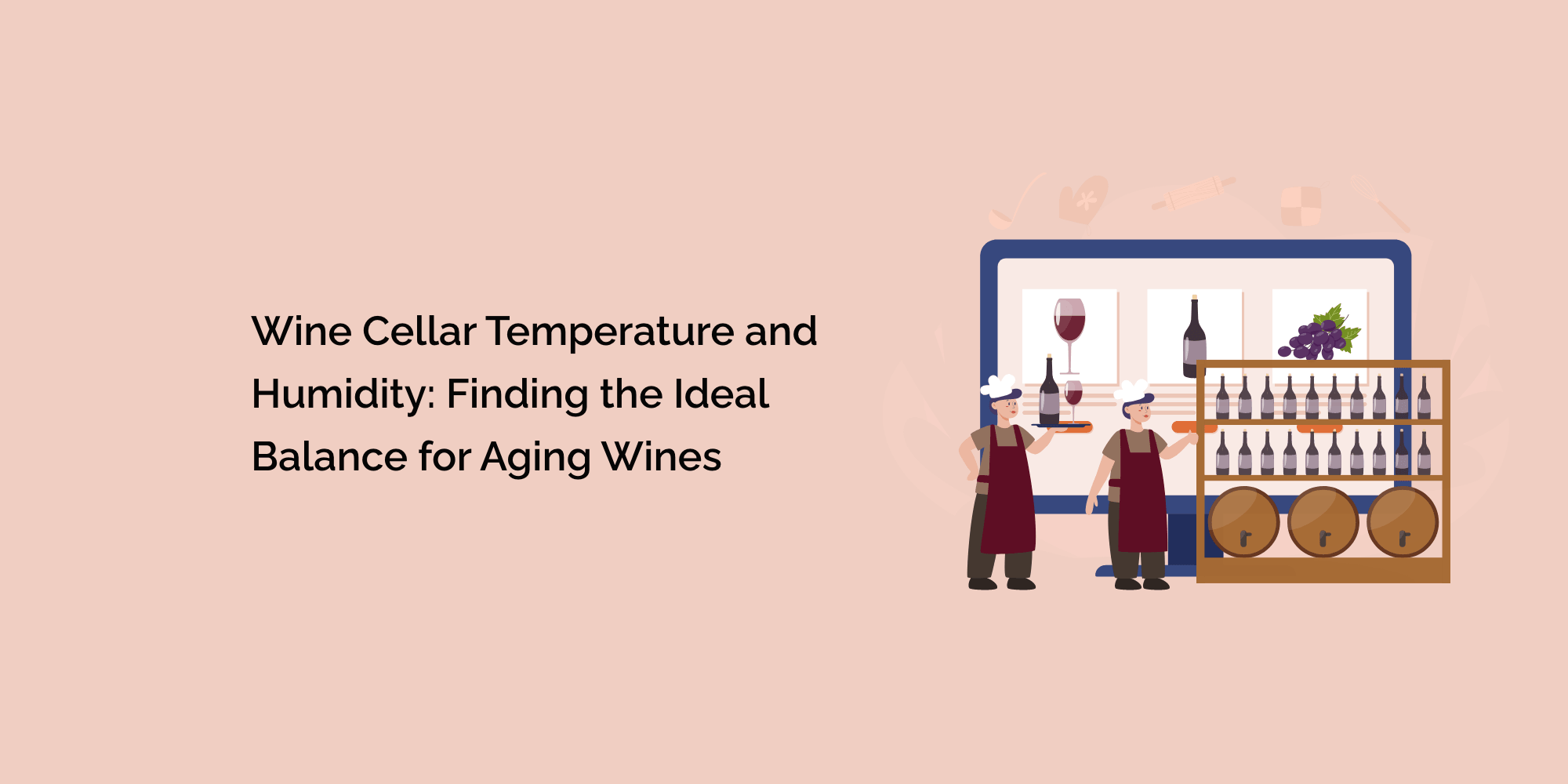For wine enthusiasts and collectors, creating the perfect environment for aging wines is an art and science in itself. Wine cellars are not only places to store bottles but also sanctuaries where wines mature, develop complexity, and reach their full potential. Two crucial factors that play a pivotal role in this aging process are temperature and humidity. Striking the right balance between these elements is essential to preserve the quality and value of wines over time. In this comprehensive blog, we will delve into the significance of temperature and humidity in wine cellars, the impact of these factors on wine aging, and how to find the ideal balance to ensure your cherished bottles age gracefully.
The Role of Temperature in Wine Cellars:
Temperature is a critical factor in wine cellars due to several reasons:
-
Wine Aging and Development: Wine aging is a delicate process influenced by temperature fluctuations. Proper temperatures allow wines to develop desirable flavors and aromas.
-
Consistency in Aging: Maintaining a stable temperature throughout the wine cellar ensures that all bottles age uniformly, avoiding variations in the aging process.
-
Preventing Spoilage: High temperatures can lead to wine spoilage, causing off-flavors and aromas that diminish the wine's quality.
-
Avoiding Oxidation: High temperatures can accelerate oxidation, negatively impacting the freshness and aging potential of wines.
- Preservation of Investment: For wine collectors, proper temperature control safeguards the investment value of their collection, preserving the market value of rare and valuable bottles.
The Importance of Humidity in Wine Cellars:
Humidity is equally crucial for wine cellars for the following reasons:
-
Cork Preservation: Adequate humidity prevents corks from drying out and shrinking, maintaining an airtight seal and preventing unwanted oxygen exposure.
-
Minimizing Wine Evaporation: Proper humidity levels minimize the evaporation of wine from bottles, preventing loss of volume and impacting wine concentration.
-
Mold Prevention: Excessive humidity can lead to mold growth, which can taint wine labels and cause damage to the cellar's structure.
-
Preventing Label Damage: Proper humidity levels preserve wine labels, especially on older or rare bottles, maintaining their aesthetic appeal.
- Protecting Cork Integrity: High humidity ensures that corks remain in good condition, avoiding crumbling or breaking during bottle opening.
The Impact of Temperature and Humidity on Wine Aging:
Temperature and humidity directly impact wine aging and can significantly influence the overall quality and taste of the wine:
-
Optimal Aging Conditions: The ideal temperature range for wine aging is between 55°F to 59°F (12.8°C to 15°C) for red wines and 49°F to 55°F (9.4°C to 12.8°C) for white wines. Proper temperature conditions allow wines to develop complex flavors and mature gracefully.
-
Preservation of Freshness: Controlling humidity prevents premature aging, preserving the freshness and vibrancy of young wines.
-
Minimizing Wine Faults: Temperature fluctuations and improper humidity levels can lead to wine faults, such as premature oxidation, microbial contamination, and cork taint.
-
Consistency in Cellar Conditions: Stable temperature and humidity levels ensure that all bottles age uniformly and avoid inconsistencies in the aging process.
- Showcasing Terroir: Proper aging conditions allow wines to express their unique terroir and varietal characteristics fully.
Finding the Ideal Balance:
Achieving the ideal balance between temperature and humidity requires careful consideration and precise control:
-
Temperature Regulation: Invest in a reliable temperature control system to maintain the desired temperature range consistently. Avoid sudden temperature fluctuations, as they can negatively impact wine aging.
-
Monitoring and Data Analysis: Regularly monitor temperature and humidity levels and analyze historical data to identify trends and patterns. This information can help you fine-tune cellar conditions for optimal wine preservation.
-
Wine Cellar Insulation: Properly insulate the wine cellar to maintain stable temperature and humidity levels. Insulation prevents external temperature changes from affecting the cellar environment.
-
Humidity Management: Utilize a humidification system to maintain the ideal humidity level. Aim for a humidity range between 60% to 70% to preserve cork integrity and prevent wine evaporation.
- Ventilation and Air Circulation: Ensure adequate ventilation and air circulation in the wine cellar to prevent mold growth and maintain consistent conditions.
Wine Cellar Cooling Solutions:
Choosing the right cooling system is crucial for maintaining the ideal temperature in the wine cellar:
-
Traditional Wine Cellar Cooling Units: These units are ideal for small to medium-sized wine cellars. They regulate temperature effectively and offer precision control.
-
Ductless Split Cooling Systems: Ductless split systems are suitable for larger wine cellars. They provide even cooling throughout the cellar and allow for flexible installation options.
-
Through-the-Wall Cooling Units: Through-the-wall units are compact and easy to install. They are suitable for small wine cellars or spaces with limited ventilation.
- Ducted Cooling Systems: Ducted systems are designed for larger wine cellars and offer discreet cooling with minimal visual impact.
Conclusion:
The perfect balance of temperature and humidity is the key to preserving fine wines and allowing them to reach their full potential. With careful consideration, precise control, and the right monitoring systems, wine enthusiasts and collectors can create an environment that nurtures their cherished bottles, ensuring they age gracefully and deliver an unforgettable tasting experience.
By adhering to best practices and understanding the impact of temperature and humidity on wine aging, you can confidently build a wine cellar that safeguards your valuable collection for years to come.








